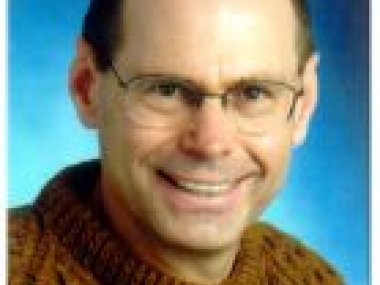Oswin Donnerer - "Changing our travel habits!"
Edited on
09 October 2017Oswin Donnerer is town councillor for environment and health in Weiz, Austria. He is also a professor at a higher technical school and Lead Partner for the URBACT project Active Travel Network, which promotes walking and cycling for short urban travel. Here, he shares his enthusiastic and pragmatic vision of his city and the future.

Does the name Weiz sound familiar? Perhaps you read it in an article about Arnold Schwarzenegger, who came from there. The city is located in south-eastern Austria, not far from Graz, the second largest city in the country, and it counts 9,000 inhabitants—20,000 with the neighbouring municipalities.
Here is what Oswin Donnerer, native to the city, has to say about it: "Weiz has been an industrial city for a hundred years. In reality, it has held manufacturing since the Middle Ages, thanks to its river that never freezes in winter. Today, electrical engineering is the most important local economic activity, with two international players: Siemens and Mschinenfabrik Andritz. The main inconvenience of the city is that there is no direct link to the motorway. However, it held up well during the latest economic downturn and its unemployment rate is one of the lowest in Austria. I like how friendly the people are here. And of course the nearby mountains, with their splendid landscape. Honestly, I cannot think of anything I don’t like in my city!"
An ambitious environmental policy
Oswin Donnerer has been town councillor since 1993. This mission gives him a sense of being able to do something in the field, to "put things into practice". The city is very active and innovative in environmental issues. For example, it has a biomass heating plant, built in 2000, which today supplies 1,600 flats and 65 industrial consumers. The goal is energy self-sufficiency. "Ten years ago, this objective was somewhat unrealistic and utopian. But today, we are getting close, step by step," explains Oswin Donnerer.
<img style="float: left;" data-cke-saved-src="uploads/RTEmagicC_portrait4.jpg.jpg" src="uploads/RTEmagicC_portrait4.jpg.jpg" width="189" height="144" alt=" />The "Gemini House" also embodies an approach that is both visionary and empiric: covered with 80 square meters of solar panels, it produces more energy than it consumes. It is very innovation and functions like a sunflower, turning regularly to face the sun. "Over the last ten years, we have received more than 20 environmental prizes for numerous municipal projects or with local NGOs," says Oswin Donnerer.
Ingenious initiatives to promote low-impact travel
He is particularly interested in transport solutions. He considers Weiz to be a human-sized city, where nothing is very far, and he bemoans inhabitants that nevertheless use their car for short trips, particularly the 6,000 people who come everyday to work in Weiz from neighbouring cities, which are often very close. He emphasises that cars result in 25% of the greenhouse gas emissions in Austria. Since 1990, emissions due to traffic have increased by 60%.
A number of initiatives have already been taken to promote walking and cycling:
- The "Cyclist of the month" has his photo publishes in the town magazine.
- A quick learn-to-ride-a-bike programme runs in childcare centres, with special equipment.
- An event is held to launch the biking season.
- There is a bike-exchange market.
- The concept of "walker miles" allows the best walkers to get "miles".
- PEDELEC was launched, an electric bike initiative jointly financed by the region. Weiz and several neighbouring towns purchased 200 pedelecs. "People can rent them, it is easy and offers effective incentive," says Oswin Donnerer.
An abundance of projects for 2011 A number of travel-related initiatives are planned for 2011: a "Go to work by bike" campaign, walks with the mayor, "step collecting" events, etc. Oswin Donnerer also places a lot of hope in the URBACT Local Action Plan that he counts on building with neighbouring municipalities: "This plan should lead to a network of bike paths that would connect all our cities. We hope this will reduce road traffic throughout the area".
Today, the project is being implemented, with a first fruitful meeting of the Active Travel Network's eleven partners in September 2010, and the very recent launch of the Weiz Local Support Group. Oswin Donnerer explains that to date, the administrative work has been the main obstacle, in part because it is the city's first experience leading and international project. However, one can count on his conviction and energy to get partners mobilised both in Weiz and in URBACT. And he, as a racing cyclist, jogger and marathoner, sets the example everyday!
Read more:
- Active Travel - URBACT website
Submitted by admin on




